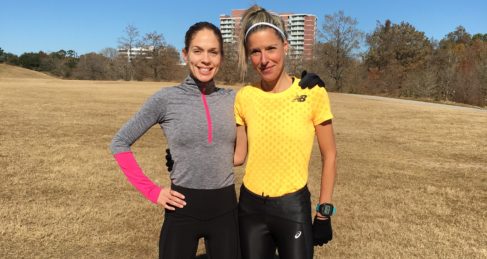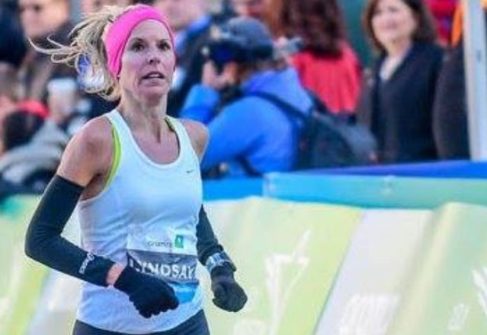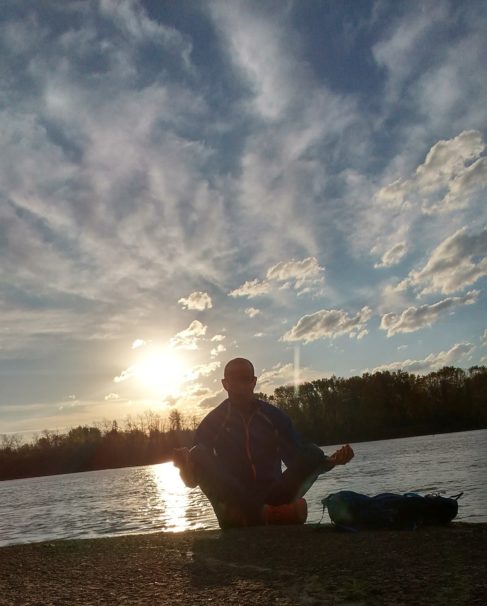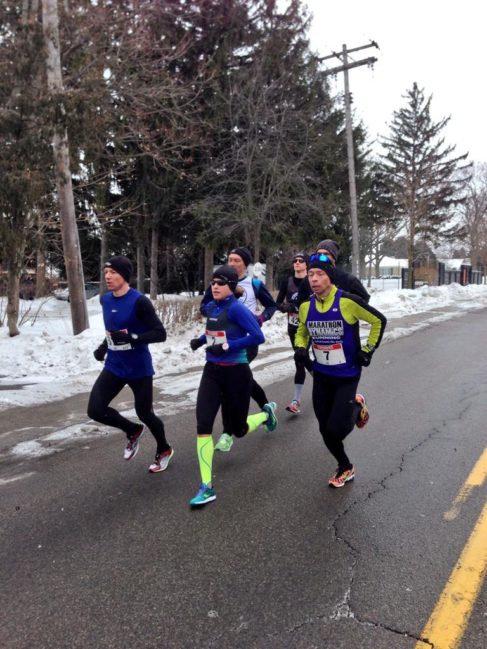Kenya to Houston to Scarborough: Catching up with Lyndsay Tessier

The Kenyan village of Iten, a good five hours north of Nairobi, has served as a home to and training ground for Edna Kiplagat, Mary Keitany, Wilson Kipsang, and Stephen Cherono.
In running, it’s a place of legend, something like an Olympus (the elevation is 8,000 ft. after all) where those already at the top of their field venture in hopes of capturing some of the fire that gives Kenyan running mythological status.
Lyndsay Tessier still insists that her primary purpose in travelling to Iten was less to do with running and more to do with personal development and a need to maintain a positive outlook on life.
“In a word, Iten is magic,” Lyndsay says. “Life is pared down to the simple. It’s peaceful and so content. You cannot experience the culture, the people, the running, the lifestyle, and the attitudes and not be changed.”
Despite an intense training regimen, days seemed to dissolve and maintain a slow, leisurely quality. A morning run and breakfast was followed by the day’s first chai break and a stroll, which Lyndsay relished as an opportunity to “interact with the people or quietly observe my surroundings.”

Lunch might be followed by a trip to neighbouring Eldoret, which led into the second chai break of the day. An easy run in the afternoon coupled with strength training would be followed by dinner and some social time before lights out at 9:00.
The nine days spent in Iten were Lyndsay’s second trip to the village. “In Kenya, I feel privileged to talk to and learn from the people I meet,” Lyndsay says. “I get to share meals with complete strangers day after day who, by the end of the trip, feel like friends despite age, ability, or cultural differences. We’re all bonded by this running thing.”
With the joyful disconnect that came after her return from Kenya, January’s Houston Half Marathon snuck up on Lyndsay.
Prior to Houston, Lyndsay describes herself as still being out of the training mindset following her 2:36 personal best at last fall’s Toronto Waterfront Marathon.
Lyndsay recalls, “While I was in Kenya, my mind was lost in the red dirt and I was enjoying being almost completely disconnected. It wasn’t until I returned, jet lagged and facing the 21 eight year olds, that I considered the significant race I was to run in a week’s time.”
As all runners are sometimes apt to do, Lyndsay imagined several worst case scenarios. “I played out conversations in my head I would have with my running mates and thought about the email I would have to send to my coach afterward, explaining why I shit the bed,” Lyndsay says.
Feeling, in her view, out of her league standing at the start line in proximity to American wunderkind Jordan Hasay, Lyndsay says her attitude was especially laissez-faire as the gun went.
Suddenly, however, the elements synced and Lyndsay hung in with a fast pack of women for the first eight miles. “I felt their energy and let it drive me,” she explains. “Rather than letting them go without even trying when they surged, I checked in with how I was feeling and attempted to go with them.”

Though she won’t race at Valencia, the gutsy performance yielded and early 40th birthday present in the form of a 1:14 personal best, which met the 1:16 Athletics Canada standard for the World Half Marathon Championships.
Like Iten, the surroundings and personal experience are Lyndsay’s ultimate takeaways from Houston. As part of a large contingent of Canadian women that included Rachel Cliff, Leslie Sexton, Natasha Wodak, Emily Setlack, Cleo Boyd, Kinsey Middleton, Shelley Doucet, and Melanie Myrand, Lyndsay was one of seven Canadian women to go sub-1:16 in Houston.
Lyndsay says, “Quite honestly, it was a surreal feeling to line up with the athletes I look up to and who I consider my role models.” Lyndsay cites the Saturday morning shakeout run with her compatriots as the highlight of Houston, serving as a chance to “get to know them better—each of them kind, friendly, humble and exceptionally hard working.”
Returning in triumph from Houston, the Toronto school teacher faced down perhaps an even more intimidating beast, the first report cards of the year. Turning the evaluation on herself, Lyndsay summarizes 2018 so far:
“While Lyndsay does not take for granted the incredible opportunity she had to train in Kenya among the best runners on the planet, race with the top runners in the world in Houston, or PB at 39 so far in 2018, she needs to demonstrate a more positive attitude when she is forced to run workouts on the treadmill.”












 Our Magazine
Our Magazine Previous Release
Previous Release
